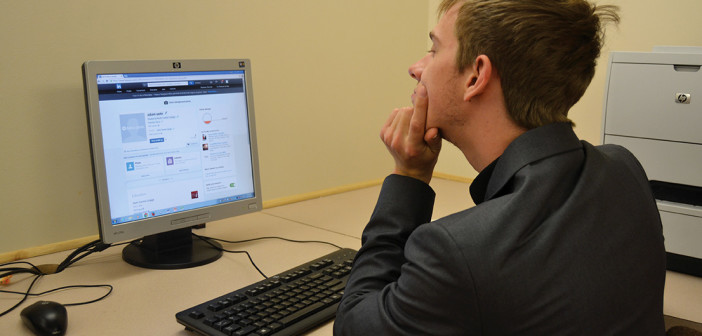LinkedIn was founded in 2002 by Reid Hoffman, and officially launched on May 3, 2003.
In its first month of existence, it had just 4,500 members. As of Feb. 5, 2015 LinkedIn has had over 347 million users in over 200 countries and has taken off as one of the premiere forms of networking in the Internet-based society. It’s clearly shown that it can be useful, but does it have any more relevance in our world today?
Other forms of social media like Twitter (500+ million users) and Facebook (over 1 billion) far surpasses LinkedIn in users. It also doesn’t have the same kind of ‘wow factor’ that other forms of social media use to maintain their user base. One LinkedIn creator has been quoted saying “We’re here to create a business, not to create something cool.”
I would recommend LinkedIn with the caveat that it should be something that you’re actually using… -Anthony Nuccio, ’15
“It’s definitely not the same social media that most people are used to,” said senior Katie Healey.
LinkedIn is less for interacting with friends and peers and more about trying to build connections between potential employers and employees.
LinkedIn, first and foremost, is a website that tries to help its users find and create connections in the workforce while searching for a job. With the Internet starting to change the way people interact with each other, there’s now more possibilities when it comes to communicating and connecting with others.
For some, LinkedIn is overwhelming. It’s easy to attempt to create an account and not understand where to start. In order to create a 100 percent completed profile, LinkedIn asks for your name, a profile photo, your current job, two other positions you’ve held, your education, five skills you have, other relevant experiences, a mission statement, and a partridge in a pear tree (well, not that last part).
With so many different pieces to complete in order to make a full and optimal profile, some argue that it’s easier to forgo making an account and instead try to connect with people face to face or with other methods.
“Because some employers are looking for how you present yourself and comfortability in a work environment, an online profile won’t help convey the message I’m trying to send,” said Adam Sehr, a junior majoring in political science.
Not only that, but LinkedIn might not be that reliable of a resource, regardless of whether or not its users are taking full advantage of its capabilities. Most students on North Central’s campus who use LinkedIn said the connections that they make on the website aren’t the same as the ones they can make in real life.
“LinkedIn could be more valuable than just an email to an employer, if we used it the right way, maybe, but I’m not going to randomly connect with someone on it better than I would face-to-face,” said Healey.
On the site, you are only able to view a user’s profile. It’s near impossible, unless you jump through several hoops, to meet someone in person or have a lengthy conversation with a potential employer. For some, even the connections they do make are for jobs that LinkedIn members aren’t interested. Healey has received multiple emails related to some of her previous work experience, but she’s looking to continue a career in academia, which isn’t what LinkedIn employers are looking at.
“One benefit would be establishing multiple connections with people you aren’t familiar with, but my LinkedIn won’t help me with the career that I’m looking for in academia and politics,” said Sehr.
For others, the site has been very helpful for them, but senior Anthony Nuccio says that in order to get the benefits of LinkedIn, you need to put in the time.
“I check it maybe once or twice a week, sometimes more,” said Nuccio. “I would recommend LinkedIn with the caveat that it should be something that you’re actually using, and not just creating one and letting it sit for the next couple of months.”
It seems like LinkedIn is on its way out the door, but that’s not to say that the site still isn’t useful. If you put in the time and effort to create a comprehensive profile and reach out to interested companies, LinkedIn could open doors that might not otherwise have been possible.

